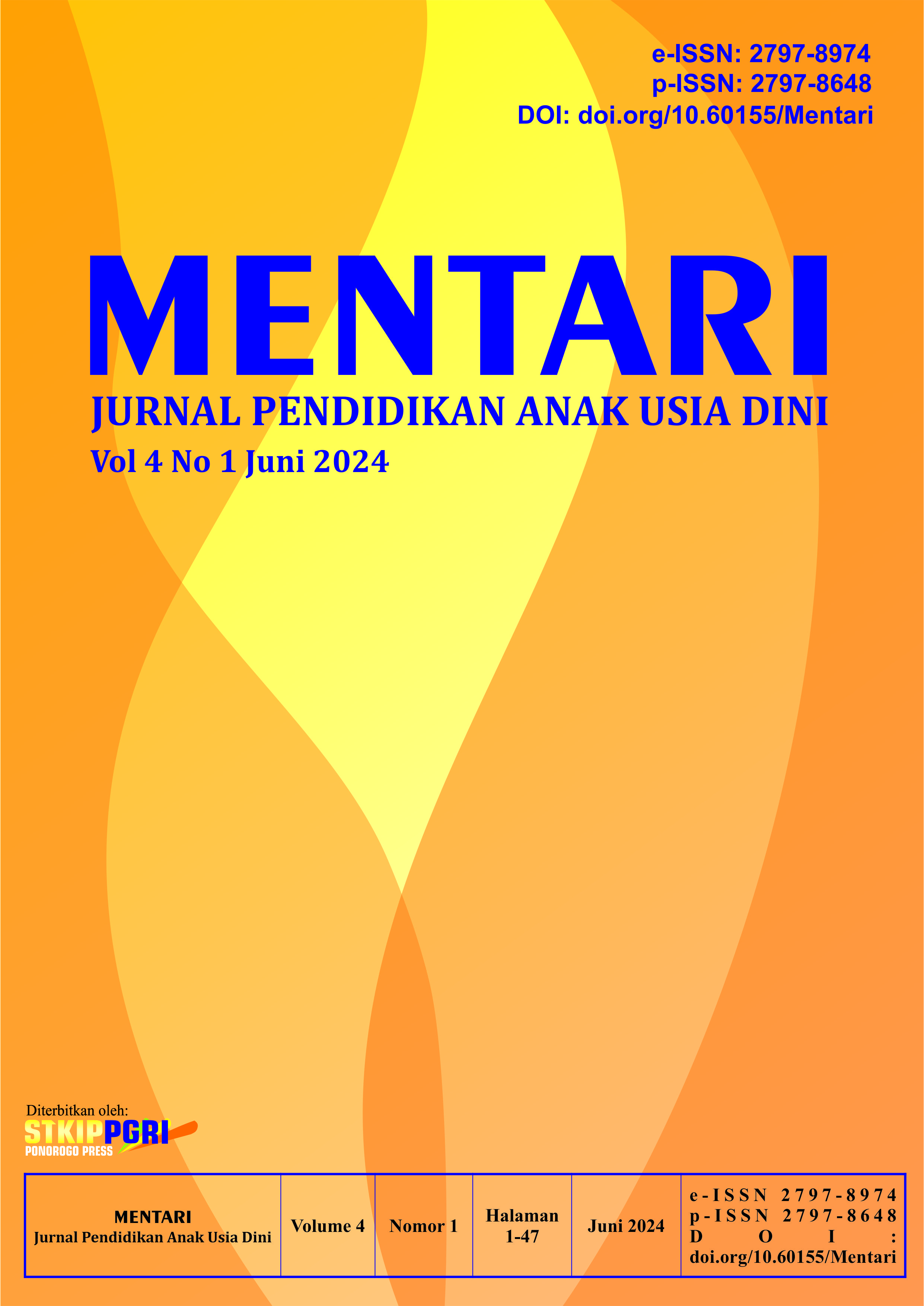Mengintegrasikan Prinsip Froebel dalam Kurikulum Pendidikan Anak Usia Dini Era Modern
DOI:
https://doi.org/10.60155/mentari.v4i1.436Keywords:
Froebel, Modern Era, Curriculum, Early Childhood EducationAbstract
The aim of this research is to examine the effectiveness of applying Froebel’s principles in the PAUD curriculum in the modern era and integrating them with technology to improve the quality of early childhood education in Indonesia. This research uses the library research method to collect and analyze various relevant literature about Friedrich Froebel’s educational principles and their application in early childhood education (PAUD). Data was collected through literature searches, evaluated, and analyzed to draw conclusions and recommendations regarding the application of Froebel’s principles in the PAUD curriculum in the modern era. Research shows that the application of Friedrich Froebel’s principles in the PAUD curriculum has a significant positive impact on children’s holistic development, including engagement, creativity and understanding of concepts. Children who follow programs based on the Froebel method show better social and emotional development and improved interaction skills. Engaged teachers report improved teaching skills and self-confidence, while parents demonstrate greater involvement in their child’s education. Although effective, the research identified challenges such as a lack of resources for teacher training and less consistent parent involvement. The research recommends increasing teacher training and parent awareness to optimize implementation of the Froebel method.









